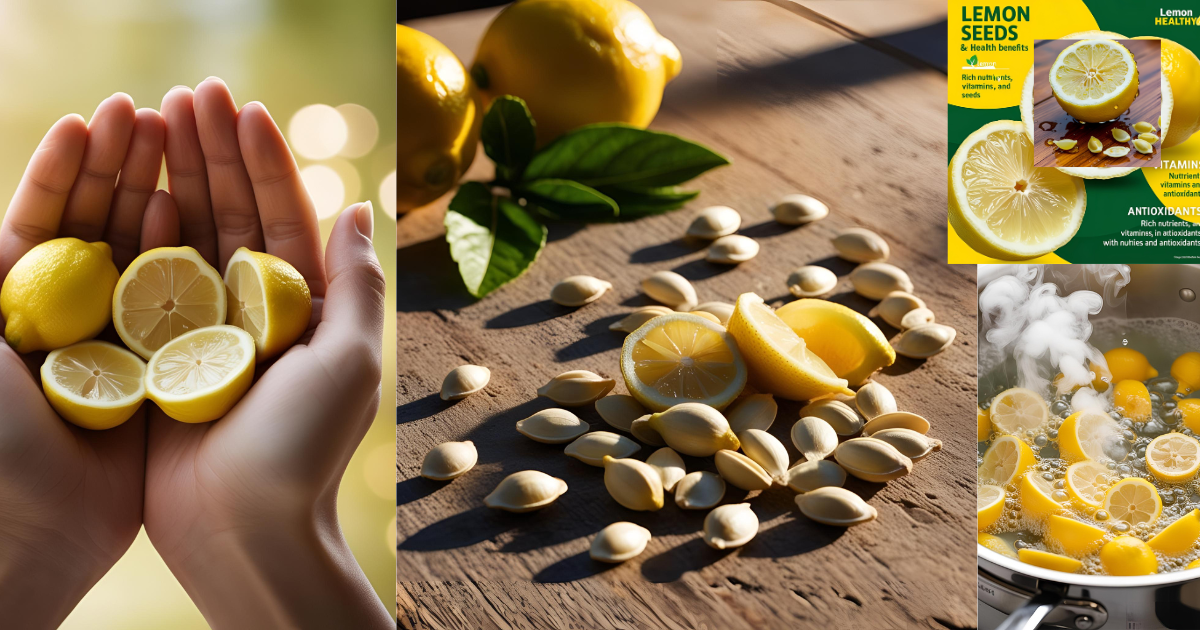Lemons are a kitchen staple known for their zesty flavour, refreshing aroma, and many health benefits. Whether squeezing them into drinks, zesting them for recipes, or using them in homemade cleaners, lemons are incredibly versatile. But what about the seeds? Most of us toss them away without a second thought. Many don’t realise that lemon seeds can be used again in surprisingly creative and beneficial ways.
From household hacks and personal care to gardening and natural remedies, lemon seeds are far from useless. Let’s explore 15 clever and sustainable ways to make the most of these little citrus gems.
Start a Mini Lemon Tree Indoors
Yes, you can grow a lemon tree from seed! It won’t be identical to the parent plant, but it will make a gorgeous indoor tree.
Rinse the seeds and remove the pulp.
Soak in warm water overnight.
Place in a damp paper towel inside a sealed bag for 7–14 days.
Once sprouted, plant in rich soil and keep in a sunny spot.
A potted lemon tree adds beauty and purifies the air, making it a lovely addition to your home.
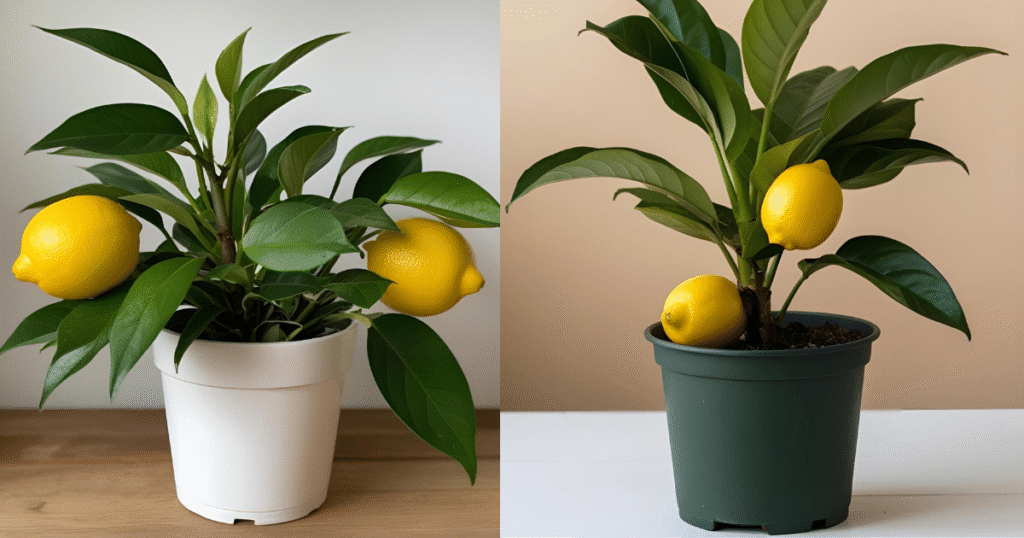
Boost Your Compost with Citrus Nutrients
Lemon seeds are rich in natural organic material. When dried and crushed, they break down slowly in compost, helping enrich the soil.
Add them to your compost bin or bury them in garden beds. Over time, they’ll provide minerals and help balance the compost’s carbon-nitrogen ratio.
Deter Garden Pests Naturally
Keep insects like ants and aphids away by scattering crushed, dried lemon seeds around plants or garden borders.
Their natural compounds and citrus aroma repel many pests without resorting to chemical sprays. They’re an effective and earth-friendly option for gardeners.
Make a Natural Shoe Deodorizer
Stinky shoes? Dry lemon seeds into small, breathable pouches or tea bags. Pop them into shoes, gym bags, or closets to fight odour.
The citrus scent absorbs moisture and neutralises smells—great for freshening up small spaces naturally.
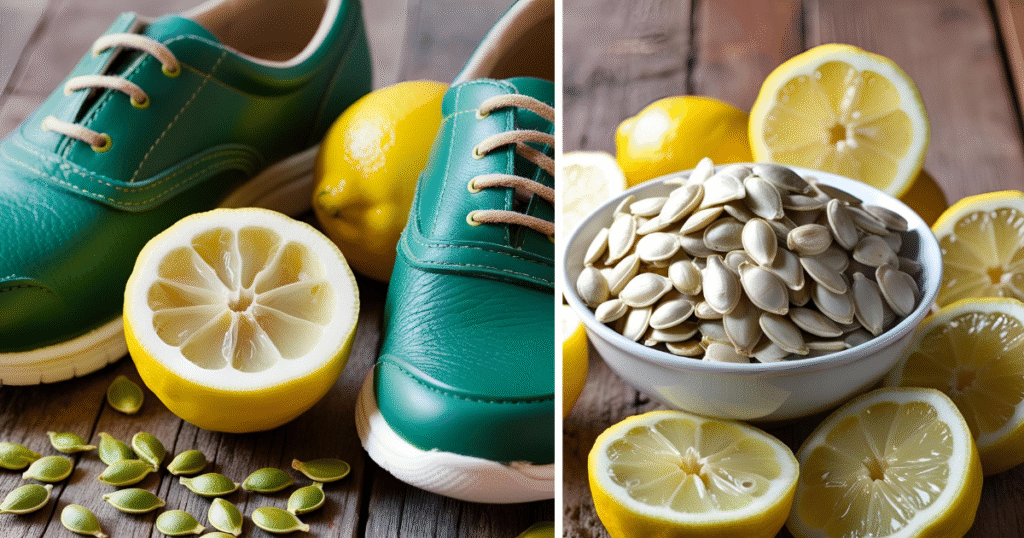
Create a DIY Skin Scrub for Radiance
Lemon seeds can be turned into a gentle exfoliator. Grind dried seeds and mix with ingredients like:
Honey (moisturising)
Yoghurt (brightening)
Coconut oil (nourishing)
Massage gently in circular motions to remove dead skin cells. It’s natural, affordable, and gives your skin a fresh glow.
Use as a Hair Rinse to Nourish Your Scalp
Boil lemon seeds in water, let cool, then strain. A nutrient-rich rinse can soothe the scalp, reduce flakiness, and promote healthy strands.
Pour over hair after shampooing for a fresh citrus boost—your scalp will thank you.
Replace Artificial Thickeners in Cooking
Lemon seeds contain pectin, a natural thickening agent perfect for:
Jams
Jellies
Fruit sauces
Wrap seeds in a cheesecloth bag and simmer in your mixture. Remove once thickened. This is a clean, additive-free way to achieve the perfect texture.
Freshen Up Your Refrigerator Naturally
Skip chemical deodorisers. Instead, dry a handful of lemon seeds and place them in a small open jar in your fridge.
They’ll absorb unpleasant odours and leave behind a mild, clean scent. Replace every few weeks for ongoing freshness.
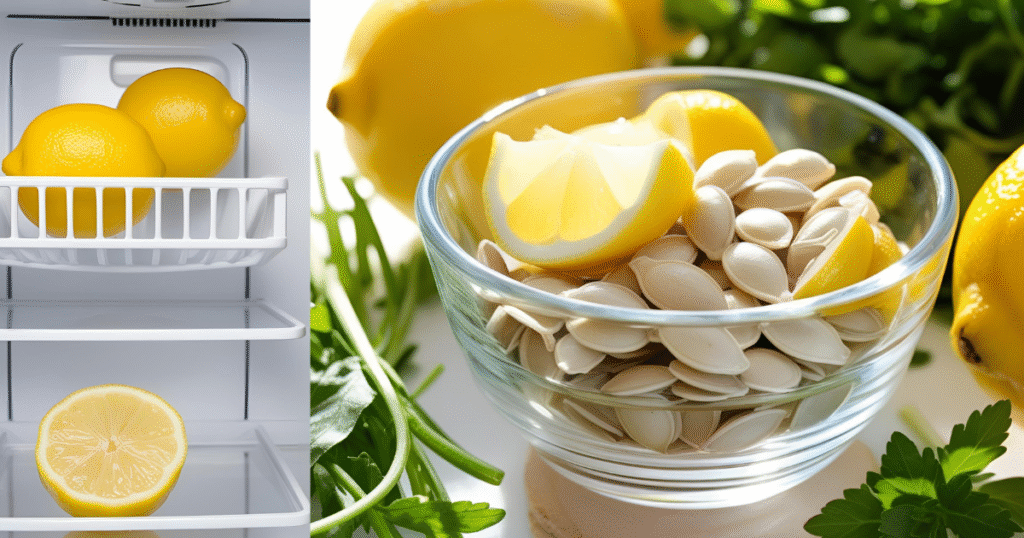
Enhance Your Bath for a Spa-Like Experience
Toss a muslin pouch of crushed lemon seeds into a warm bath. The citrus essence lightly scents the water, and the mild oils may help soften the skin.
Pair with Epsom salts or dried lavender for a thoroughly relaxing soak.
Add a Zesty Twist to Herbal Teas
Drop a few lemon seeds into your herbal tea while it steeps. They enhance flavour with a gentle citrus infusion and can even add trace minerals.
Remove before drinking, or strain the tea for a smooth sip. This is a unique way to use the whole lemon!
Scrub Grease Naturally with Seed Paste
Mix crushed lemon seeds with baking soda and a few drops of lemon juice. This forms a mildly abrasive paste that’s perfect for:
Cutting through greasy pans
Scrubbing sinks or stovetops
Cleaning glass stovetops
It’s powerful yet gentle—and eco-friendly too!
Craft Citrus-Infused Sachets for Drawers
Combine dried lemon seeds with dried herbs like rosemary or mint and pack into cloth sachets.
Please place them in dresser drawers, closets, or suitcases. They not only smell fresh, but they also help ward off musty odors and keep linens smelling lovely.
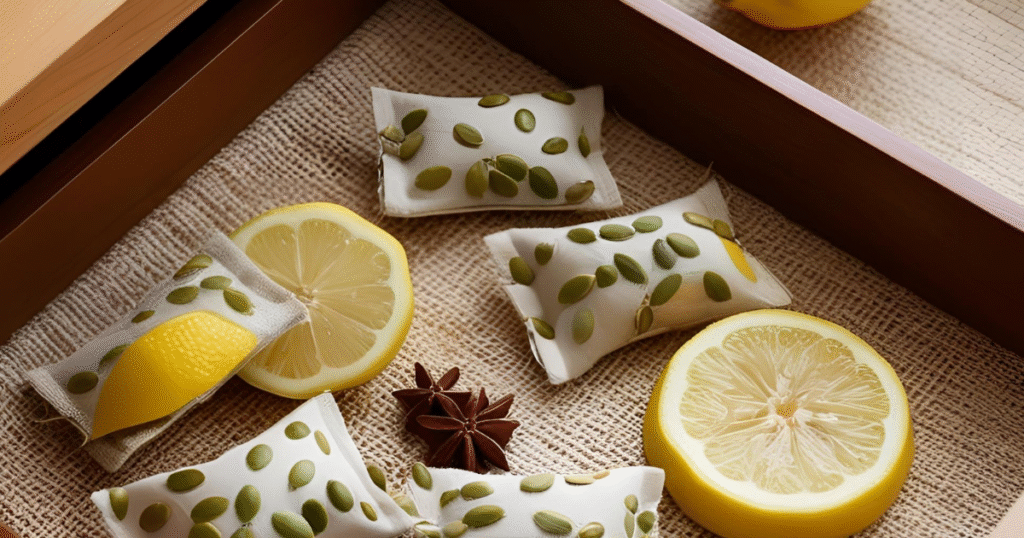
Experiment with Citrus Seed Art Projects
If you’re into crafts, try using lemon seeds in natural art! Clean, dry seeds can be used for:
Mosaics
Nature collages
Jewellery making
They’re biodegradable and unique—perfect for eco-conscious crafters.
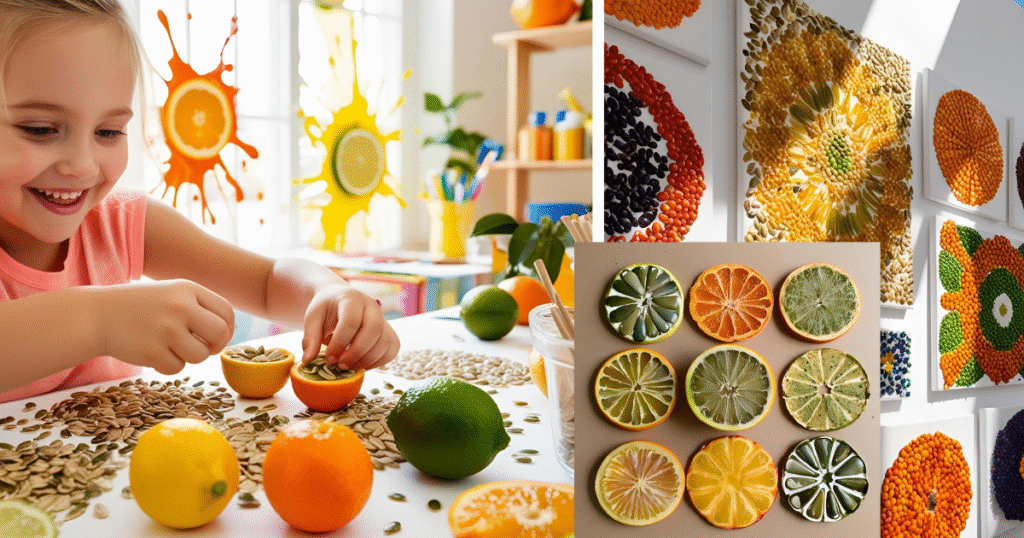
Make Citrus Seed Potpourri Blends
Combine dried lemon seeds with orange peels, cinnamon sticks, and cloves. Simmer them in water for a homemade potpourri that leaves your home smelling warm and citrusy.
Store dried blends in a jar and reuse them several times for a natural air freshener.
Explore Homemade Skincare Serums
Some DIY beauty lovers swear by soaking lemon seeds in carrier oils (like jojoba or almond oil) for a few days. The oil absorbs their light citrus essence and can be used as a base for:
Massage oil
Lip balms
Skin serums
Be sure to patch-test first, especially if you have sensitive skin.
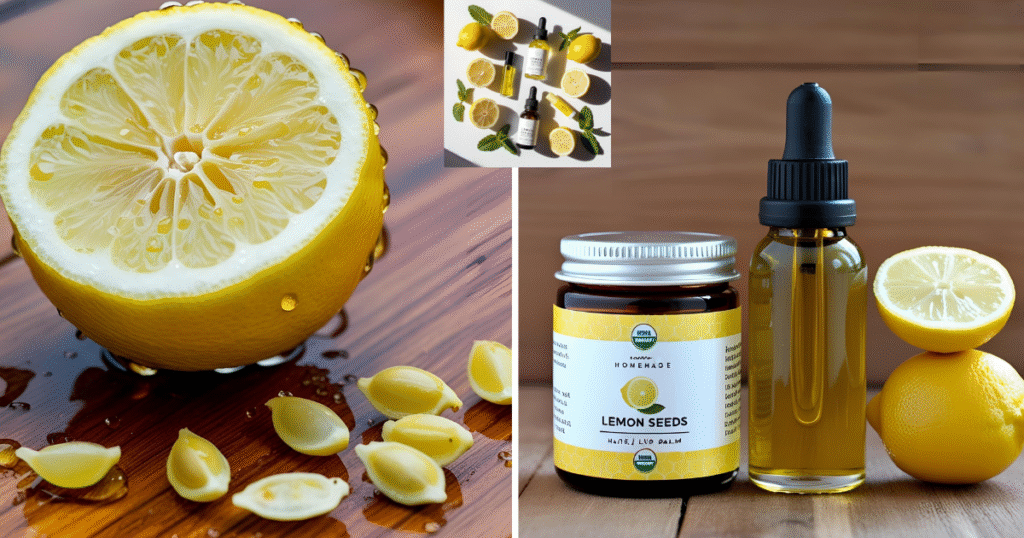
Conclusion: Rethink Your Citrus Waste
Next time you’re juicing a lemon, don’t toss those seeds! Whether you’re into gardening, cooking, cleaning, or self-care, there’s a clever way to put them to use. These tiny leftovers have more potential than you might think—and they’re entirely free.
By reusing lemon seeds, you’re reducing waste, embracing sustainability, and discovering fun new ways to get creative at home. It’s one more small but meaningful step toward eco-friendly living—and who knew it could start with something as simple as a lemon seed?
FAQs About Reusing Lemon Seeds
- Can you eat lemon seeds directly?
While lemon seeds aren’t toxic, they’re quite bitter and hard, making them unpleasant to eat raw. It’s best to use them in infusions or grind them in skincare. - Do lemon trees grown from seed produce fruit?
They can, but it may take 5–15 years, and the fruit might differ from the parent lemon. Many people grow them mainly for their ornamental value. - How long can you store lemon seeds before using them?
Dry lemon seeds thoroughly and store in a cool, dark place for up to 6 months. Make sure they are scorched to prevent mould. - Are there any risks in using lemon seeds on the skin?
Though generally safe, some people may have sensitivities. Always do a patch test to check for irritation when using new DIY skincare products.

